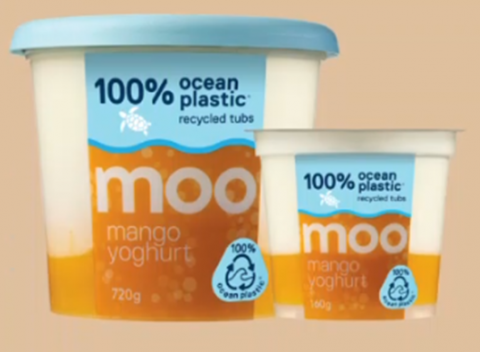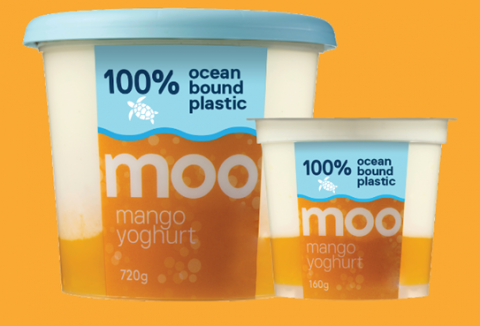

Between at least November 2021 and the date of the undertaking, MOO claimed that its yoghurt tubs were made from ‘100% ocean plastic’, which the ACCC was concerned gave the impression they were made from plastic waste collected directly from the ocean, when this was not the case.
While MOO included disclaimers on the top and back of the packaging, the ACCC considered they were insufficient to overcome the headline representation of ‘100% ocean plastic’.
MOO has admitted in the undertaking it has given the ACCC that the ‘100% ocean plastic’ representations likely contravened the Australian Consumer Law, which prohibits false or misleading representations.
“Our investigation revealed that the plastic resin used in the manufacture of MOO’s yoghurt packaging was collected from coastal areas in Malaysia, and not directly from the ocean,” ACCC Commissioner Liza Carver said.
“Making false statements about a product’s environmental or sustainability qualities can mislead consumers, as well as putting the businesses making genuine claims at a competitive disadvantage.”
“It is important that environmental and sustainability claims by businesses are correct as they are a key influence on consumer choices and what people spend their money on,” Ms Carver said.
MOO co-operated with the ACCC’s investigation to promptly resolve the matter and has undertaken to remove the ‘ocean plastic’ representations from its yoghurt packaging, social media platforms, and website. MOO has also committed to publishing corrective notices on its website and social media platforms.
In the court-enforceable undertaking provided to the ACCC, MOO has committed to conducting internal audits of the ‘ocean bound plastic’ resin used in their packaging, as well as implementing an Australian Consumer Law compliance program.
As part of its 2023-24 compliance and enforcement priorities, the ACCC is prioritising consumer, product safety, fair trading and competition concerns in relation to environmental and sustainability claims.
On 14 July 2023, the ACCC released its draft guidance to improve the integrity of environmental claims made by businesses.
“Businesses must ensure any environmental claims made are accurate and truthful, and this includes taking reasonable steps to verify supporting information provided to businesses by suppliers,” Ms Carver said.
“This enforcement outcome against MOO is a reminder of the importance for businesses to regularly review any environmental or sustainability claims about their products to ensure they are correct and up to date.”






